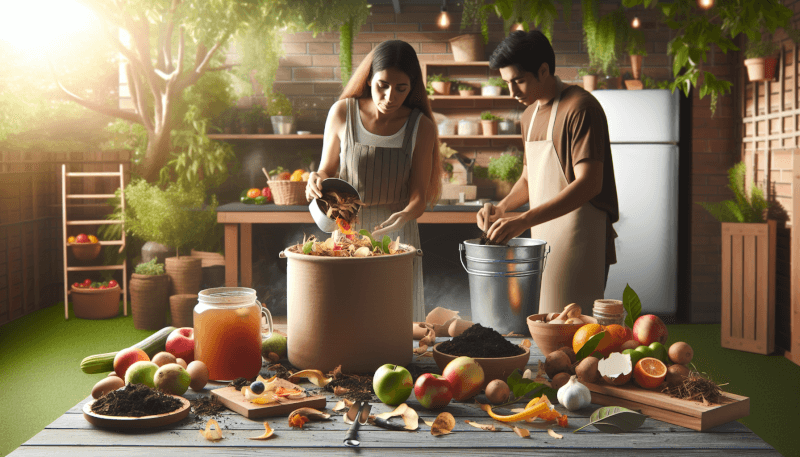Imagine being able to create a nutrient-rich, organic fertilizer for your garden using items you already have at home. With the simple technique of making your own DIY garden compost tea, you can do just that. This article will guide you through the step-by-step process of creating compost tea, providing you with a sustainable and eco-friendly way to nourish your plants and promote their growth. From gathering the necessary materials to brewing the perfect tea, you’ll learn all the tips and tricks to make your garden flourish. So grab your gardening gloves and get ready to embark on an exciting journey to elevate your gardening game.
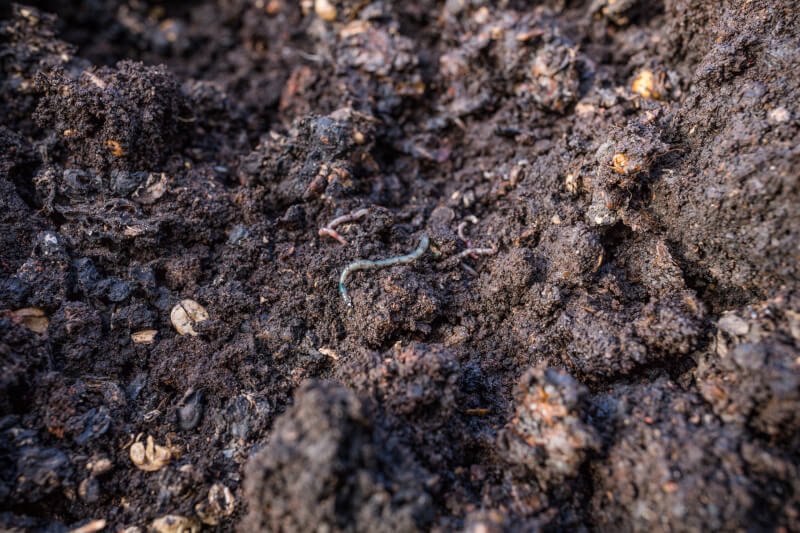
Materials Needed
To make your own DIY garden compost tea, you will need the following materials:
1. Compost
Compost is the key ingredient in making compost tea. It provides the nutrients and beneficial microorganisms that will benefit your plants. Make sure to use well-aged compost that is fully decomposed.
2. Water
You will need water to brew the compost tea. It is important to use clean, chlorine-free water for the best results. Consider using rainwater or filtered water if your tap water contains chlorine or other chemicals.
3. Container
Choose a container that is large enough to hold the desired amount of compost tea you want to brew. A food-grade plastic or a non-reactive material container is recommended. Avoid using containers made of metal, as they can react with the tea and affect its quality.
4. Aeration Device
Aeration is a crucial part of making compost tea. You will need an aeration device, such as an aquarium pump or an air stone, to keep the tea well-oxygenated throughout the brewing process. This ensures the growth of beneficial aerobic bacteria and prevents anaerobic conditions.
5. Strainer
To remove any solid particles or chunks of compost from the finished tea, you will need a strainer. A fine mesh strainer or cheesecloth works well for this purpose. It is essential to strain the compost tea before use to prevent clogging and to ensure a homogeneous liquid.
Choosing the Right Compost
Before you start making your compost tea, it is important to choose the right compost that will provide the nutrients and microorganisms your plants need.
Type of compost
Choose a compost that is suitable for your plants and gardening needs. There are different types of compost available, such as plant-based compost, animal-based compost, or a mix of both. Consider the specific requirements of your plants and choose a compost that aligns with those needs.
Quality of compost
The quality of your compost directly affects the quality of your compost tea. Use well-aged compost that has gone through the decomposition process. This ensures that the compost is rich in nutrients and beneficial microorganisms. Avoid using compost that is still raw or overly decomposed.
Compost ratio
To achieve the desired potency in your compost tea, it is important to maintain the right ratio of compost to water. As a general rule, use 1 part compost to 4-5 parts water. This ratio can be adjusted depending on the specific needs of your plants, but it serves as a good starting point.
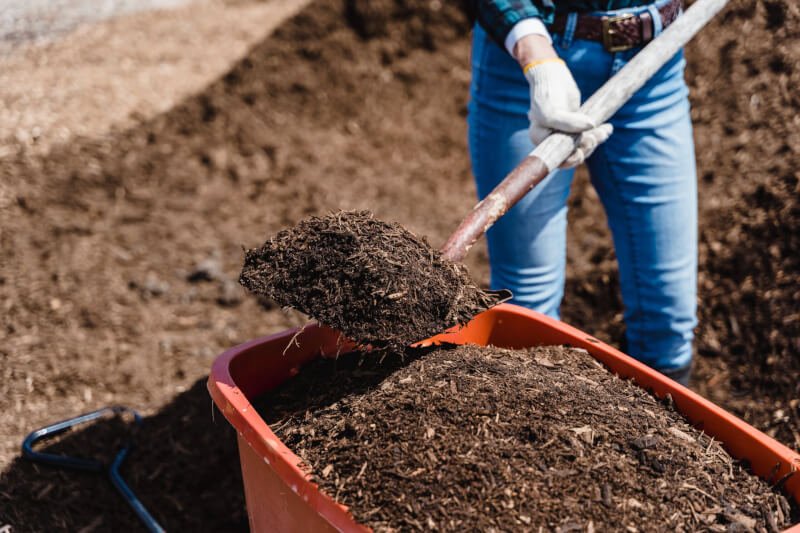
Preparing the Compost Tea
Now that you have gathered all the necessary materials and chosen the right compost, it’s time to prepare your compost tea.
Fill container with water
Start by filling your container with the desired amount of water. Use clean, chlorine-free water for the best results. It is recommended to use a watering can or a bucket with a spout for ease of use.
Add compost
Measure out the appropriate amount of compost according to the compost ratio mentioned earlier. Add the compost to the container of water. Make sure the compost is thoroughly mixed with the water to ensure proper extraction of nutrients and microorganisms.
Stir the mixture
Using a long-handled spoon or stick, stir the mixture vigorously for a few minutes. This helps to further incorporate the compost and water, ensuring that the nutrients and microorganisms are evenly distributed.
Aeration
Place the aeration device, such as an aquarium pump or air stone, into the container. Turn on the device to start the aeration process. Aeration provides a constant supply of oxygen to the tea, promoting the growth of beneficial aerobic bacteria and preventing the development of anaerobic conditions.
Strain the compost tea
After allowing the compost tea to brew for the desired length of time (discussed later), it is essential to strain the tea to remove any solid particles or chunks of compost. Use a fine mesh strainer or cheesecloth and carefully pour the tea through it into another container. This will ensure a clear and homogeneous liquid that is ready for application.
Understanding Aeration
Aeration is a crucial step in making compost tea. It plays a vital role in creating an ideal environment for beneficial microorganisms to thrive.
Importance of aeration
Aerobic bacteria, which require oxygen to live and multiply, are the beneficial microorganisms that we want to cultivate in compost tea. Aeration ensures a constant supply of oxygen to the tea, promoting the growth of these beneficial aerobic bacteria. It also helps prevent the growth of harmful anaerobic bacteria, which thrive in oxygen-deprived conditions.
Types of aeration devices
There are several options when it comes to choosing an aeration device for your compost tea. An aquarium pump with an air stone is a popular choice as it provides a steady stream of bubbles that distribute oxygen throughout the tea. Other options include air diffusers or even homemade aeration devices using materials like PVC pipes.
Aeration duration
The duration of aeration depends on various factors, such as the ambient temperature and the desired potency of the compost tea. Generally, it is recommended to aerate the tea for 24-48 hours. This allows enough time for the beneficial microorganisms to multiply and for the nutrients to be extracted from the compost. However, shorter brewing times can also be effective if you need the tea sooner or want a weaker solution.
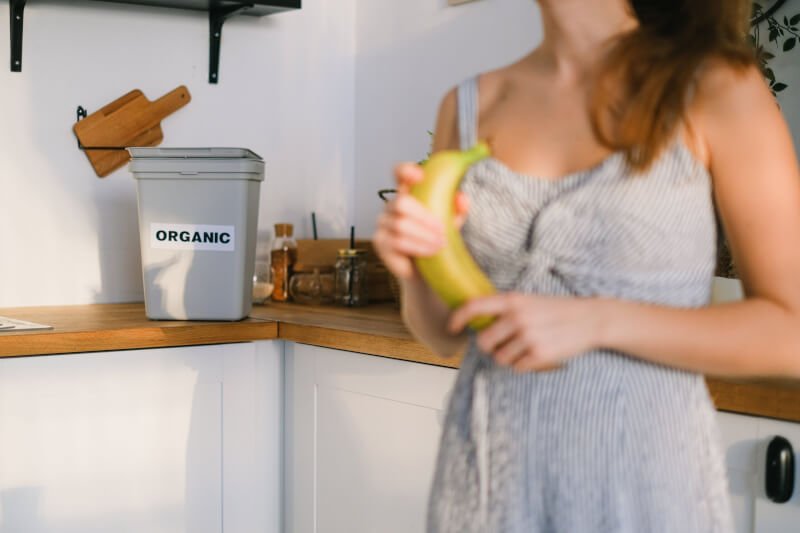
Pulling the Tea
After the compost tea has been properly brewed and aerated, it is time to extract the tea for use in your garden.
Determining readiness
To determine if the compost tea is ready for use, you can look for visual cues such as a change in color. The tea should have a rich, dark color, similar to that of strong tea or coffee. Additionally, the tea should have a pleasant earthy aroma, indicating the presence of beneficial microorganisms.
Filtering the compost
Before pulling the tea, it is important to strain it to remove any solid particles or chunks of compost. Using a fine mesh strainer or cheesecloth, carefully pour the tea through it into another container. This will give you a clear liquid that is ready for use.
Storing compost tea
Compost tea is best used immediately after brewing to ensure maximum potency. However, if you have leftover tea or need to store it for later use, it can be stored in a container with an airtight lid. Keep the tea in a cool, dark place to preserve the beneficial microorganisms. It is generally recommended to use stored compost tea within a week to maintain its effectiveness.
Applying Compost Tea
Now that you have your compost tea ready, it’s time to apply it to your plants. Here are a few factors to consider when applying compost tea.
Dilution ratio
Compost tea should be diluted before application to avoid potential nutrient burn or over-fertilization. As a general guideline, dilute the compost tea with water at a ratio of 1:10, one part tea to ten parts water. Adjust the dilution ratio based on the specific needs and sensitivity of your plants.
Application methods
Compost tea can be applied to plants through various methods, including foliar spraying, soil drenching, or root zone application. Foliar spraying involves spraying the tea directly onto the leaves and stems of the plant. Soil drenching involves pouring the tea onto the soil around the base of the plant. Root zone application involves applying the tea to the area surrounding the roots of the plant. Choose the method that best suits your plants and gardening goals.
Timing
The timing of compost tea application depends on various factors, such as plant growth stage and weather conditions. In general, it is best to apply compost tea during the early morning or late afternoon when temperatures are cooler. Avoid applying tea during the hottest part of the day or when rain is expected, as this can wash away the beneficial microorganisms.
Frequency
The frequency of compost tea application depends on the needs of your plants and the condition of your soil. As a general guideline, it is recommended to apply compost tea every 2-4 weeks during the growing season. However, you can adjust the frequency based on the specific requirements of your plants and the health of your soil.
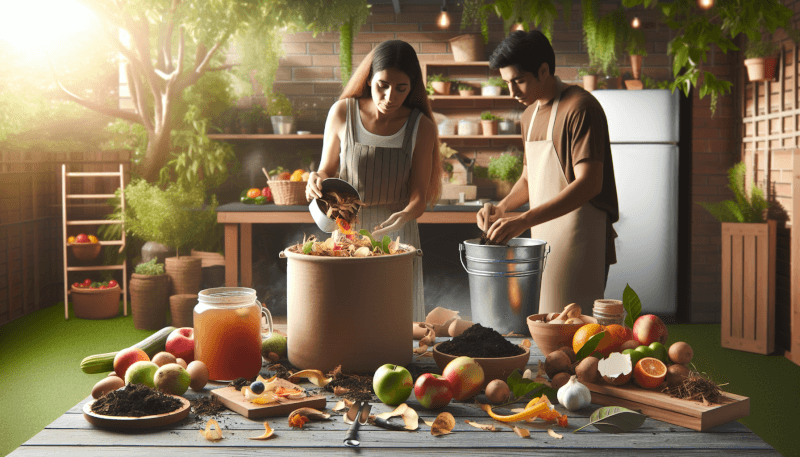
Benefits of Compost Tea
Using compost tea as a natural fertilizer and soil amendment offers numerous benefits to your garden and plants.
Increased nutrient availability
Compost tea provides a readily available source of nutrients to plants. The beneficial microorganisms in the tea help break down organic matter in the soil, releasing essential nutrients and making them more easily absorbed by plant roots. This can lead to improved overall plant health and increased nutrient availability.
Improved soil structure
The application of compost tea can improve soil structure over time. The beneficial microorganisms in the tea help to break down compacted soils, allowing for better aeration and water infiltration. This can result in improved root development and overall soil health.
Enhanced plant growth
Compost tea supplies plants with a diverse range of beneficial microorganisms, such as bacteria, fungi, and protozoa. These microorganisms play a crucial role in promoting plant growth by assisting in nutrient uptake, suppressing harmful pathogens, and stimulating root development. The result is improved plant growth and productivity.
Disease suppression
Compost tea contains beneficial microorganisms that can help suppress harmful pathogens and reduce the incidence of plant diseases. The presence of beneficial bacteria and fungi in the tea can compete with and inhibit the growth of disease-causing organisms. Regular application of compost tea can help establish a healthy, disease-resistant ecosystem in your garden.
Common Mistakes to Avoid
While making and using compost tea is a relatively simple process, there are some common mistakes to avoid to ensure optimal results.
Using low-quality compost
The quality of your compost directly affects the quality of your compost tea. Avoid using low-quality or unfinished compost that may contain weed seeds, pathogens, or harmful chemicals. Make sure to use well-aged compost that has gone through the decomposition process.
Overloading with compost
Using too much compost in relation to water can result in a tea that is too concentrated and potentially harmful to your plants. Stick to the recommended compost ratio and adjust as needed based on the specific needs of your plants.
Not allowing enough aeration
Adequate aeration is crucial for the growth of beneficial aerobic microorganisms and the prevention of anaerobic conditions. Make sure to provide sufficient aeration to your compost tea by using an appropriate aeration device and ensuring it runs for the recommended duration.
Failing to strain the tea properly
Failing to strain the compost tea before application can result in clogged sprayers or uneven distribution of nutrients. Always strain the tea using a fine mesh strainer or cheesecloth to remove any solid particles or chunks of compost.
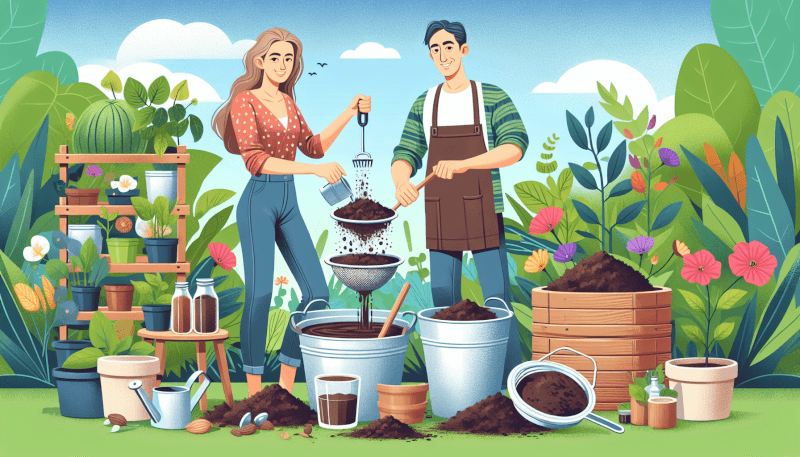
FAQs
What is compost tea?
Compost tea is a liquid fertilizer and soil amendment that is made by brewing compost in water. It contains beneficial microorganisms, nutrients, and organic matter that help improve soil health and promote plant growth.
Is compost tea better than regular compost?
Compost tea and regular compost offer different benefits. While regular compost provides slow-release nutrients and improves soil structure over time, compost tea provides a more readily available and concentrated source of nutrients. Compost tea can also introduce beneficial microorganisms to the soil, enhancing its fertility.
How often should I apply compost tea?
The frequency of compost tea application depends on the needs of your plants and the condition of your soil. As a general guideline, applying compost tea every 2-4 weeks during the growing season is recommended. However, you can adjust the frequency based on the specific requirements of your plants.
Can I use compost tea on all plants?
Compost tea can be used on a wide variety of plants, including vegetables, fruits, flowers, herbs, and ornamentals. However, some plants may be more sensitive to certain nutrients or microorganisms in the tea. It is always a good idea to start with a diluted solution and monitor your plants’ response before applying compost tea to a larger area.
Conclusion
Making your own DIY garden compost tea is a simple and effective way to boost the health and productivity of your plants. By choosing the right compost, properly brewing and aerating the tea, and applying it correctly, you can enjoy the numerous benefits that compost tea offers. From increased nutrient availability to improved soil structure and enhanced plant growth, compost tea can be a valuable asset in your gardening toolkit. Avoid common mistakes and explore the possibilities of compost tea to create a thriving garden ecosystem. Happy brewing!

